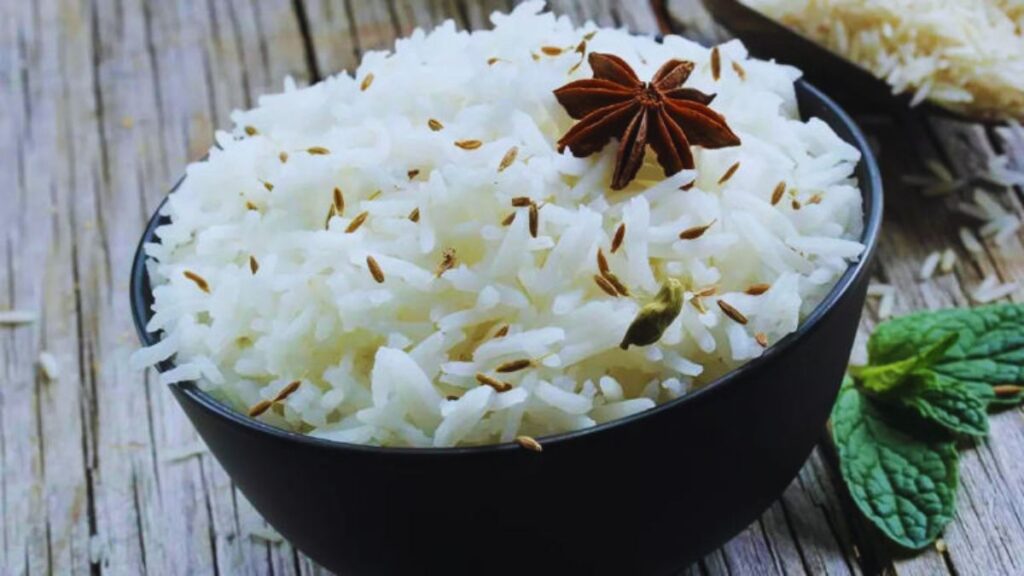In Indian households, roti and rice are the two main staples that complete every meal.
Both provide essential carbohydrates, energy, and important nutrients that support daily health. Yet, when it comes to dinner—especially late-night meals—many people wonder which is the better choice for digestion and sleep. While roti offers sustained energy and fiber, rice is often preferred for its light and soothing nature. Understanding how each affects your body at night can help you make smarter, healthier dinner choices.
Why Dinner Choices Matter for Digestion and Sleep
Dinner is the final meal of the day, and it plays a direct role in determining how well your digestive system and metabolism function overnight. The body’s digestive activity naturally slows down as bedtime approaches, which means heavy or oily meals can make you feel bloated, uncomfortable, or restless. Choosing easily digestible foods at night can prevent acidity, promote gut comfort, and even improve sleep quality.
A balanced dinner should nourish the body without overburdening the stomach. This is why the debate of roti vs rice at night is so common—both are rich in carbohydrates but differ in fiber, digestion speed, and how they influence satiety and sleep.
How Roti Affects Nighttime Digestion
Roti, typically made from whole wheat or multigrain flour, is packed with dietary fiber and complex carbohydrates. This fiber slows down digestion, ensuring a gradual release of energy over several hours. For people with active evenings, late workouts, or those aiming to maintain stable blood sugar levels overnight, roti can be a great choice.
However, the same fiber that supports steady energy can also make roti feel heavy for those with slower metabolism or sensitive digestion. Eating multiple rotis close to bedtime might lead to bloating or heaviness, especially if paired with rich curries or oily accompaniments. People prone to acidity may find it uncomfortable to digest whole wheat late at night.
Benefits of Eating Roti at Night
- Keeps you full for longer, reducing late-night hunger.
- Helps maintain stable blood sugar levels due to slow digestion.
- Provides sustained energy for active individuals or those with long evenings.
While roti offers several health benefits, it may not suit everyone at night. If your dinner time is close to bedtime or if you experience indigestion often, lighter foods might be a better fit.

How Rice Impacts Digestion and Sleep Quality
Rice, especially white rice, has a much lower fiber content since its bran and germ layers are removed during milling. This makes rice easier to digest and quicker to break down, placing less strain on the stomach. Many people in South India and coastal regions prefer rice at night for this very reason—it feels light, comforting, and helps the body wind down after a long day.
White rice also has an indirect link to better sleep. Its carbohydrate content helps increase serotonin production in the brain—a neurotransmitter that promotes relaxation and restful sleep. For those who eat dinner early or lead a sedentary lifestyle in the evening, rice can be a soothing and digestion-friendly choice.
Benefits of Eating Rice at Night
- Light on the stomach and easy to digest.
- Promotes calmness and better sleep through serotonin release.
- Ideal for early dinners or people with minimal physical activity in the evening.
Since rice digests quickly, it may not keep you full for long. To balance this, it’s best paired with lentils (dal), vegetables, or lean protein like paneer, chicken, or fish. Overeating rice or pairing it with calorie-dense curries can lead to weight gain over time.

Roti vs Rice: Comparing Digestive Effects
Both roti and rice have nearly similar calorie counts and carbohydrate content, but their fiber difference affects how your body processes them.
| Aspect | Roti | Rice |
|---|---|---|
| Fiber Content | High | Low |
| Digestion Speed | Slow | Fast |
| Fullness | Long-lasting | Short-term |
| Best For | Active individuals, steady energy | Light digestion, better sleep |
Tips for a Balanced and Healthy Dinner
Whether you prefer roti or rice, moderation and balance are key. A healthy dinner should include complex carbohydrates, protein, and fiber for proper digestion and recovery.
- Portion Control: Eat two medium-sized rotis or one small bowl of rice – avoid overeating.
- Add Protein: Pair with dal, lentils, tofu, paneer, or grilled chicken for balanced nutrition.
- Include Vegetables: Add greens and fiber-rich veggies to support digestion and prevent acidity.
- Avoid Oily Foods: Skip fried or spicy gravies late at night to prevent bloating and heaviness.
- Stay Hydrated: Drink enough water throughout the day (at least two litres ) to help the digestive system function smoothly.
If you’re looking for a light, sleep-friendly dinner, rice is generally the better option. It’s easy digestibility and calming effect on the body make it suitable for nighttime meals. However, if you have a late dinner after physical activity or prefer longer satiety, roti can work well when consumed in moderation. Ultimately, the choice depends on your digestive comfort, activity level, and portion size. Listen to your body—choose what feels lighter, keeps you comfortable, and supports restful sleep.
A mindful approach to dinner can go a long way in improving digestion, metabolism, and overall well-being.
Disclaimer: This article is for informational purposes only. Consult a healthcare professional or dietitian for personalised guidance.



